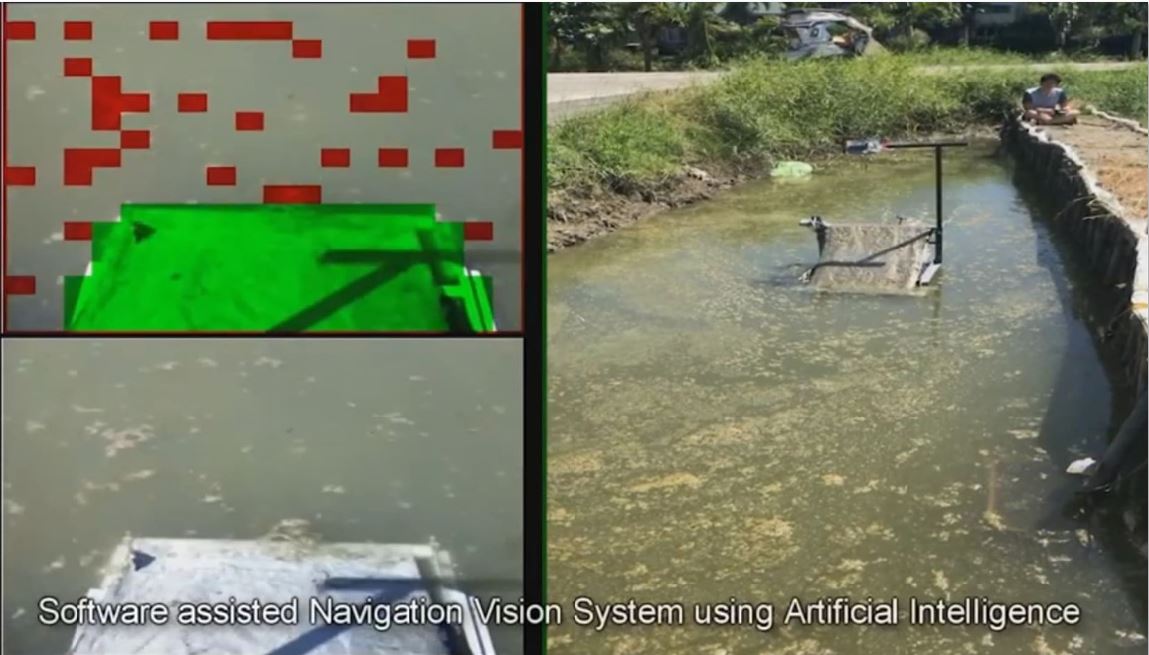DLSU Manila develops aquafeed technology to ensure regular supply for fish farms
By: The Good News Pilipinas Team
|
Published on: August 12, 2020

DLSU Manila developed technology and implemented it under the DOST CRADLE Program.
De La Salle University-Manila (DLSU-Manila) has developed an aquafeed technology that ensures a regular supply of lab-lab that is used for milkfish and other fish production.
Under the Department of Science and Technology (DOST) CRADLE Program, DLSU Manila was introduced to Santeh Feeds Corporation to implement a project that developed the following: Lab-Lab Harvester Autonomous Mode, Lab-Lab Harvester Vision System, Drying and Preservation Machine.
According to Dr. Alvin B. Culaba, the project leader of the Aquafeed Lab-Lab that was enrolled in the Collaborative Research and Development to Leverage Philippine Economy (CRADLE) program, researchers and scientists from DLSU-Manila developed a technology wherein lab-lab can be harvested every summer so it can be preserved and used during the rainy season, thus ensuring a steady supply of the feeds. He further said that lab-lab is a natural material that grows abundantly in watery areas, particularly during the summer season.
“With the use of Automated Lab-lab Harvester, the collection of lab-lab has been made quicker. During manual collection, it takes around 30 minutes and four (4) to five (5) people are needed to complete the collection of lab-lab but with the help of the newly-invented machine, the process only takes five minutes,“ said Dr. Culaba.
He also mentioned that the dried lab-lab which is made into powder is being placed into the dryer to preserve lab-lab by minimizing the moisture content, resulting in extended shelf life. With this technology, lab-lab becomes readily available even during off-season especially during the rainy season at a lesser cost.
Dr. Culaba said that the CRADLE program of the DOST is ideal because private companies are given the chance to work with scientists and the universities with R&D capacity to do research, share knowledge, and develop technologies that will address the real problems of the industry.
“I agree with Doc Alvin (Culaba), though we are also making R&D initiatives in the industry, we admit that we have limited resources when it comes to the financial aspect and our skills are inadequate for these tasks,” said Patricia I. Rico, president of Santeh Feeds Corporation.
She said that this kind of arrangement, with the academe partnering with industry and government that provides the funds, is a huge help to innovate, to be more cost-efficient, and to improve the existing production process.
DOST Secretary Fortunato de la Pena reported the development of the aquafeed technology during his public briefing on August 7, 2020.
The DOST Secretary said that the agency primarily implemented the S4C program to ensure that the research projects of the different universities and research centers will be put into good use by various industries because of their practical application.
“We don’t want to limit our researchers to merely publishing their works in universities; we also want some sectors to benefit from their works,” said de la Peña.
DOST-developed food technologies were recently introduced to MIMAROPA MSMEs.
Local entrepreneurs have also been given access to DOST laboratories and equipment financing during the pandemic
SEND CHEERS in the comments below to DLSU Manila for developing aquafeed technology to ensure regular supply for fish farming.
Want to know how to be a Proud Pinoy? Like, Follow, Subscribe to GoodNewsPilipinas.com, and our socials Facebook, Twitter, Instagram, Good News Pilipinas! TV on YouTube, for new story notifications, and e-mail newsletters for updates on more Filipino Pride stories.